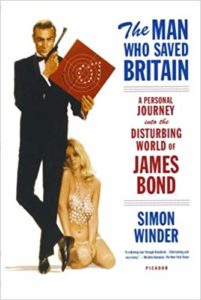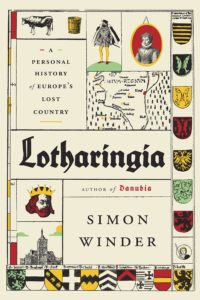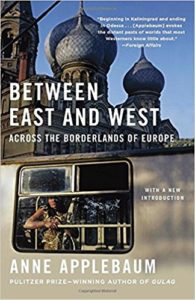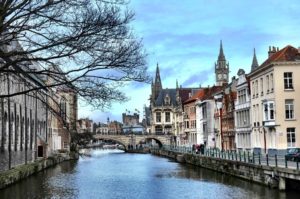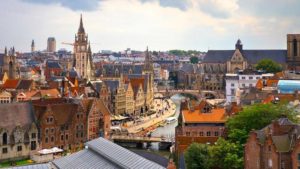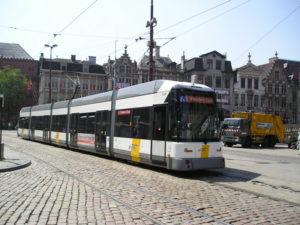I’ve been a Simon Winder fan ever since he published his hilarious cultural exposé James Bond: The Man Who Saved Britain. I read it while traveling and laughed so hard and so often that I startled people around me in airports and on planes. I just couldn’t help myself.
I was more circumspect when Winder launched a trilogy about the tangled history of German-speaking peoples and their friends and foes with Germania. I made sure that I read that book and its follow-up Danubia at home. I laughed even more, but this time only my dogs were startled.
Those books are a unique combination of memoir, travelogue, history, and cultural commentary filtered through an exceedingly wry sense of often self-deprecating humor. They are very British. Where does his new book and the last volume in the trilogy take us? A land that most people have never heard of: Lotharingia.
Okay, it may sound like a country in a Marx Brothers movie, but it’s real. Well, it was real. It’s the part of Charlemagne’s empire that lay between France and Germany and today is roughly where you find The Netherlands, Belgium, Luxembourg and parts of France and Switzerland. The region has seen umpteen battles as one ruler or country after another sought to control it or even small parts of it. Winder jokes about the blizzard of battles, some of them started over nothing, and crazy rulers like the French king who thought he was made of glass.
It’s all true, all wildly fascinating, and Winder’s colorful images are wonderful. Here’s how he describes Burgundy, one of the various countries to rise–for a time–out of Lotharingia’s chaos: “In many ways the Burgundian state as it developed was like a vast strangler-fig around the borders of France, from the English Channel to the Alps, both crushing France and living off of it, using the haziness of Lotharingia to intersperse itself in spaces in between.”
Winder has spent years exploring the remotest corners of this area, is steeped in its tangled history, and makes thought-provoking observations on every single page. He invokes the region’s many rivers more than once, and at times you may feel yourself on a languorous river cruise while you read, enjoying the fantastic views.
It’s a great voyage because you don’t have to put up with annoyances like people around you taking endless selfies and calling home to check on their Amazon deliveries. Along the way you discover mind-blowing art, fabulous treasure, bizarre monuments, and tranquil oases that might make you want to start packing your bags.
Winder is a perfect tour guide. He’s witty, affable, erudite, and engaging. He has a brilliant eye for the weird, picturesque or goofy detail, whether noting a king or emperor’s unusual name or pointing out that sacred relics in medieval Europe were as common as penny candy.
Encyclopedic and consistently entertaining, this is a perfect gift for fans of well-written travelogues, history, and memoir. Winder’s personal and family wanderings are as much fun as following his exploration of the most luxuriant royal family trees that ever sprang from Lotharingia’s extravagantly fertile soil.
Lev Raphael is the author of twenty-six books in genres from memoir to mystery and has reviewed for The Detroit Free Press, The Washington Post, Huffington Post, Jerusalem Report, Bibliobuffet, Lambda Book Report, and Michigan Radio.

